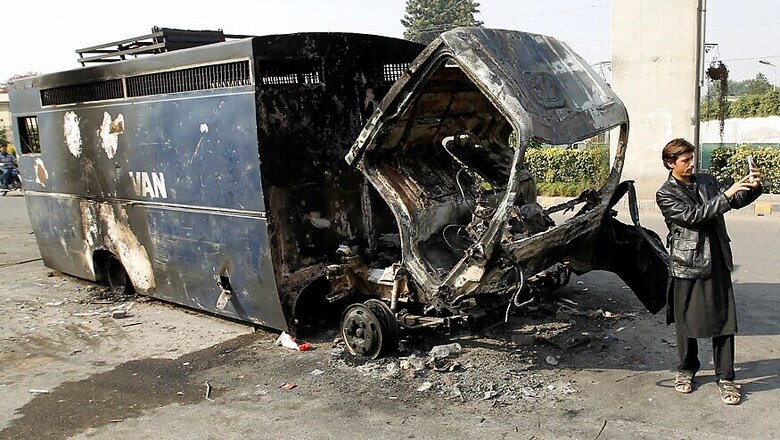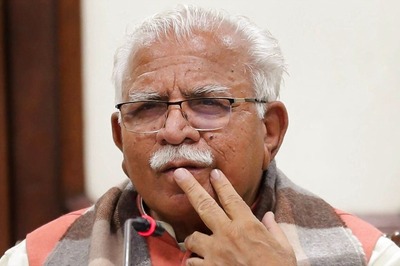
views
New Delhi: The Pakistan government and Army received a tongue lashing from the Islamabad High Court on Monday for how the military ‘mediated’ to end the sit-in protest blocking the entrance to the capital, Dawn reported.
The court was referring to the situation that occurred on Saturday when the government launched an operation to remove protestors camped out at the Faizabad Interchange, Islamabad’s link to Rawalpindi.
Dawn reported that on same day, Chief of Army Staff, General Qamar Javed Bajwa, had advised Prime Minister Shahid Khaqan Abbasi to "handle the Islamabad dharna peacefully".
"Who is the Army to play the role of mediator?" Justice Shauqut Aziz Siddiqui asked. "Where does the law assign this role to a major general?"
Police and paramilitary forces end up calling off the clearance operation after it turned deadly. Security forces fired tear gas and rubber bullets at the demonstrators but were met by stubborn resistance by protesters who blocked roads and torched vehicles. At least six people were killed and around 190 injured.
The government then asked the military to help. However, the Pakistan Army, in response said that while it was "fully ready" to take action, a "few points need deliberation". Subsequently, no troops were deployed in the city.
"This is proof of the military's involvement," the judge remarked.
The court said that the administration has the right to call in the Army to control an emergency situation and the Army was bound to heed the call.
"Soldiers who are inclined towards politics should turn in their weapons," the court added.
Roughly 2,000 protesters from the Tehreek-i-Labaik Ya Rasool Allah Pakistan Party had blocked the main highway used by thousands of commuters since November 6, causing hours-long traffic snarls.
The protesters were demanding the resignation of federal law minister Zahid Hamid over a hastily-abandoned amendment to the oath election candidates must swear by. They linked it to blasphemy and claimed the oath was softened to enable the participation of Ahmadis, a long persecuted minority sect.
After negotiations late on Sunday night, the Pakistan government capitulated to the protesters' demand for Hamid’s resignation, among other conditions.




















Comments
0 comment